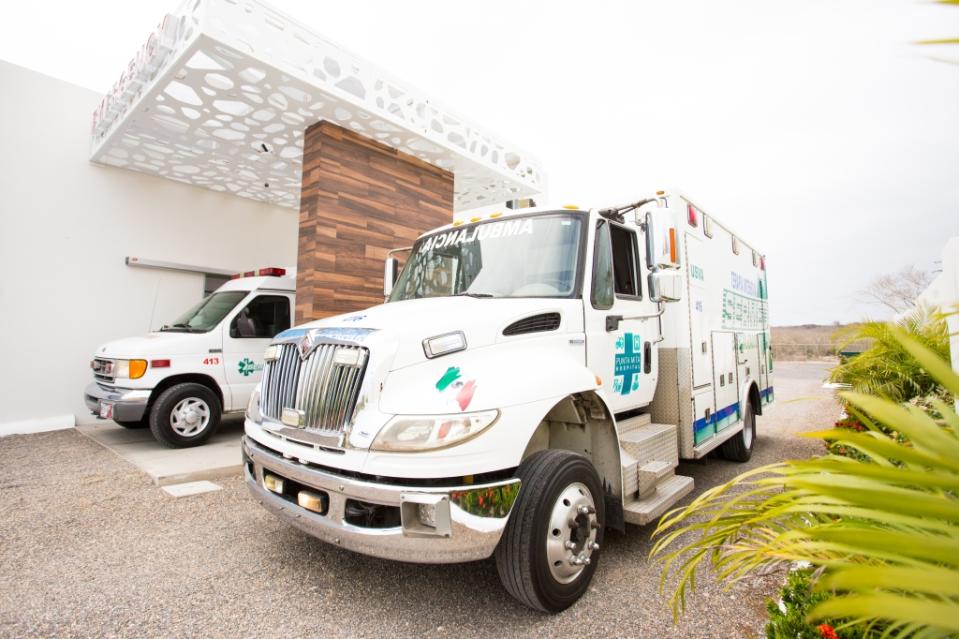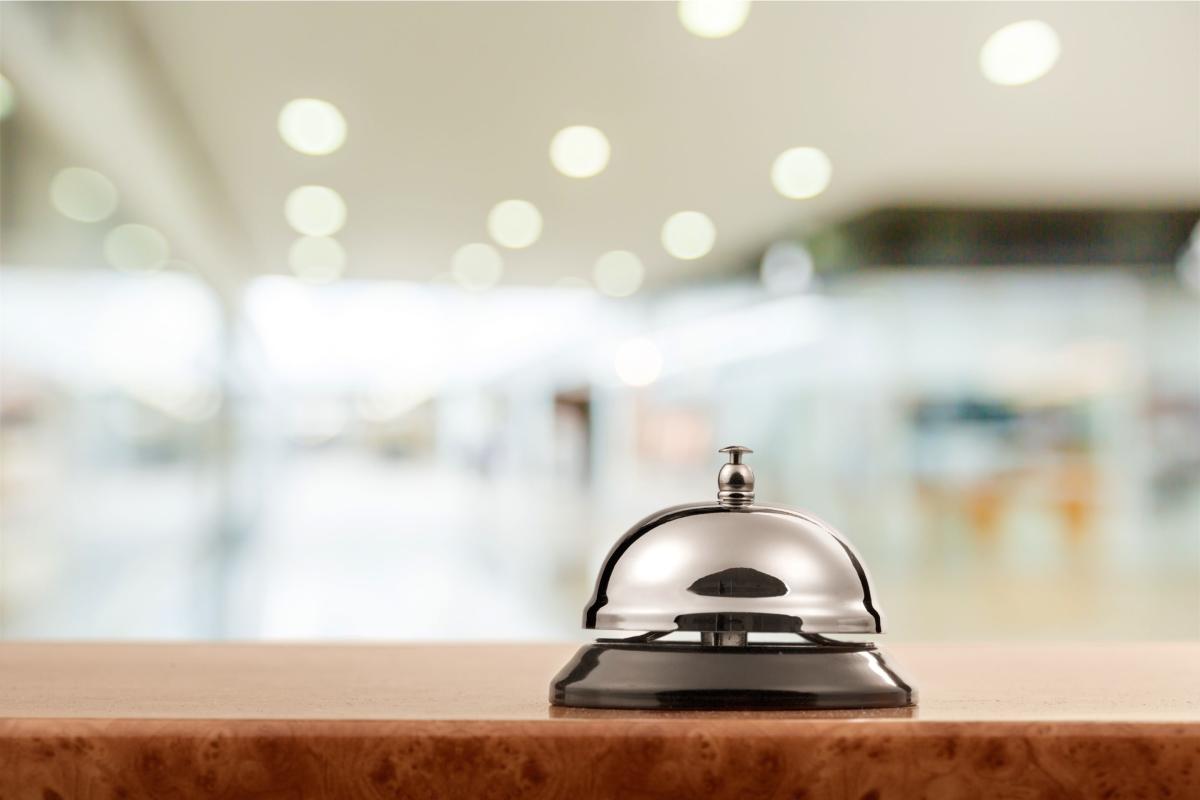How hotel executives can positively impact the community
On board the HMS beaglea sailboat anchored off Puerto Ayora on Santa Cruz Island Galapagos, high school chefs plated a three-course meal resembling fine dining. At the table, women from different organizations discussed life on the famous but remote archipelago, something most people don’t consider. Conversations focus mainly on the land and animals; However, social problems and inequalities are often ignored.
Similarly, Mexico’s Punta de Mita is shaped as a luxury tourist destination, but up the road from beach resorts, basic health care is hard to come by. Or in a place like mauiEcosystems and watersheds enliven the island but are on the brink.
Tourism is so difficult. Many low-income or environmentally unsafe places happen to be attractive attractions, and hospitality needs to balance this with a sustainable living space. As such, some hospitality boards are examining their role in the community and the positive impact they can make.
develop well-being for the residents
The Diez family started in 1986 Quasar Expeditions, a tour operator in the Galápagos Islands with two small boats running expedition cruises. Their original vision was to contribute to the preservation of the islands through tourism. However, over the past 17 years they have seen Galápagos grow beyond its means along with the demand for tourism and the resulting needs (more hotels, restaurants, shops, etc.). During this time, the family became aware of the issues plaguing the community and how most of the funding, including the National park entrance fee ($100 per adult), goes to environmental programs.
Before COVID, tourism made up 85% of the Galápagos economy. But on the other hand, the people there don’t even have proper waste disposal.
“The year is 2022 and there is no drinking water in the Galápagos Islands,” says Fernando Diez, Quasar’s Marketing Manager. He noted that rampant misuse of funds and greenwashing among local government and conservation institutions exacerbates the problem. His brother Francisco, President and CEO of Quasar, adds: “It’s a third world country and many people of low economic means see life as a zero-sum game. But many here see Galapagos as a gold mine, if you will, that must be exploited to its greatest advantage.”
The board of Quasar consists of five members: mother, father and three sons. They meet about once a month and find success in shared values, a strong bond of trust and the ability to separate family and business. Social initiatives came to the fore as populations grew without the infrastructure to support them. And a recent study by science directly looked at this balance and found that “the natural characteristics of the islands and species are well protected. However, many people believe that sustainability will not be achieved unless social problems are solved.”
Due to the risk of corruption at many foundations, Quasar directly screens NGOs and non-profit organizations, particularly those that have a positive impact on the community. Among them educational groups, such as Fundacion Naveducando, provide learning opportunities for children. Quasar also donated the HMS beagle for various community services, such as the Galápagos Gastronomy and Hospitality School. The high school students—many of whom are children of older fishermen—learn high-end culinary and hospitality skills, including engineering, mechanics, sailing, cooking, and captain training.
They also take locals on short cruises by boat. Many of them never thought they would visit Galápagos National Park because they cannot afford a tour. “There is a huge gap between the community and what Galápagos is, and we want to bridge that gap by giving residents something no one has ever given them, which is being able to see where they live,” stressed Francisco this discrepancy and the unbalanced economy in the islands. “I believe that the travel industry and cruise lines should be the ones to fill this gap.”
Building the community alongside the growth of tourism
Located near Mexico’s Puerto Vallarta, Punta de Mita is evolving into a beach destination packed with high-end experiences. A community within the community is Punta Mitaa 1,500-acre private peninsula with 19 residential communities, two golf courses, five beach clubs and two 5-diamond rated resorts: the Four Seasons Resort Punta Mita and the St. Regis Resort Punta Mita.
Animosity first arose when the bulldozers arrived more than 20 years ago. However, Punta Mitas developer FOOD had sustainability in mind from the start to help the community grow alongside tourism development.
“The local community is similar to most in Mexico: there’s this natural contrast between those who have and those who don’t,” says Carl Emberson, director of operations at DINE Punta Mita. As a result, DINE has funded various organizations over the two decades to ensure the area develops healthily across all sectors. These efforts focused on local welfare. “From the beginning there was a consciousness to support our community, both from us as developers and from the homeowners in Punta Mita who are wealthy Americans, Canadians and Mexicans.”

Prior to COVID, the Board of Directors – comprised of homeowners, executives and colleagues from DINE – established their own foundation called Fundación DINE Punta Mita with the intention of continuing this effort but with a more focused angle. As COVID took its toll, the foundation quickly raised $1 million for food programs and Connect for Kids technology distributions that enabled distance learning. The foundation has since worked to build a hospital that would provide regular, urgent, and emergency care that was previously not readily accessible. And next year, they’re opening a campus for education, both secondary and tertiary, to provide training for jobs.
“You build a community by doing other things besides the cocktail parties and the great dinners,” says Emberson. “You build it by being aware of the community.”
An all-inclusive approach to Hawaii
Tourism needs to have a holistic approach that considers all aspects of the “place,” and foodservice brands need to consider how to get involved, not if. Hawaii, for example, sees a constant flow of visitors, but has to get expelled as the “World Capital of Endangered Species”.
That Andaz Maui at Wailea Resort has built strong relationships across the island to enrich cultural stories, support small businesses and farmers, and protect natural habitat that is rapidly disappearing due to invasive species, climate and over-development.
That Pu’u Kukui watershed, for one, is especially important in the West Maui Mountains. The natural watershed provides West Maui with water that simply cannot survive without proper water flow. However, certain threats are affecting its current vitality.
“People don’t realize that we live on an island and that people like us care about the water we use, whether it’s on-site or off-site,” says Kalikolehua Storer, the property’s Hawaiian culture education specialist. The partnership includes education, raising awareness and taking responsibility for water protection.
This initiative looks at Maui as a whole, which includes the future health of the land and people. And this understands tourism as a holistic approach. And for places like Maui, Galápagos, Punta de Mita and other areas that balance visitors with social and environmental needs, inclusivity beyond the walls of hospitality is necessary. It’s just all-encompassing. “We thrive as a Maui community when,” says Storer. “We include all partnerships, whether local farmers, eco-friendly landscaping, conservation and conservation. We live together on an island.”
According to that science directly Social and environmental concerns must be considered holistically for a tourism destination to be successful. “If tourism is considered a catalyst for sustainable development,” it says. “Then the quality of life and individual well-being of local residents must be considered, even as conservation priorities are considered.”
This story was originally featured on Fortune.com
More from Fortuna:
The American middle class is at the end of an era
Sam Bankman-Fried’s crypto empire “was run by a gang of kids in the Bahamas” who were all dating
Sick with a new Omicron variant? Be prepared for this symptom


Comments are closed.